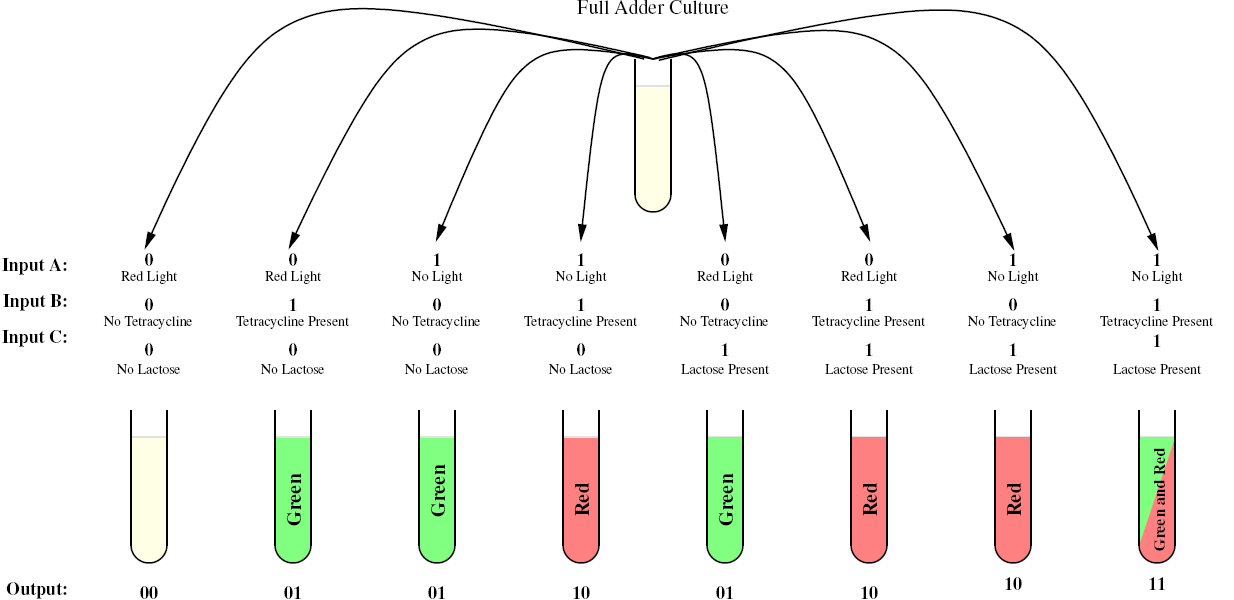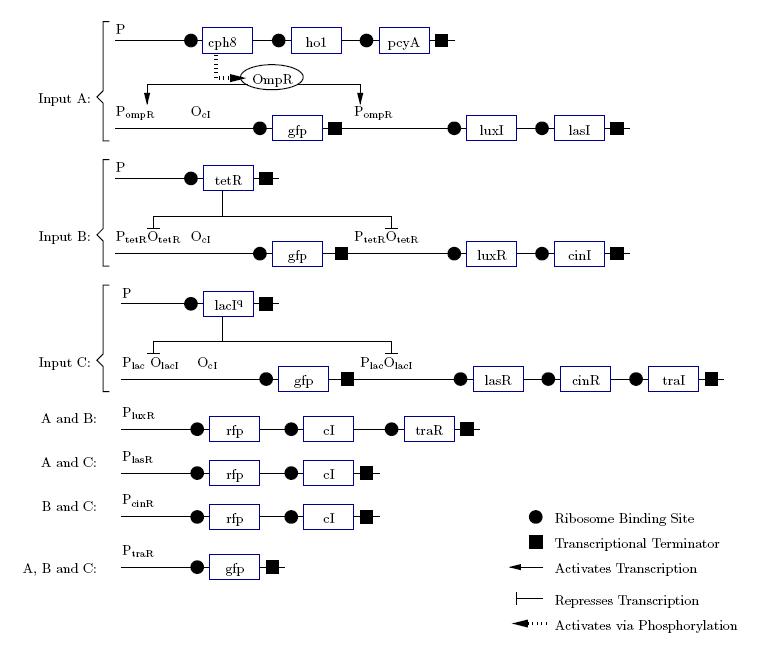Future Work
From 2007.igem.org
(→Full Adder) |
|||
| Line 1: | Line 1: | ||
===Full Adder=== | ===Full Adder=== | ||
| - | As a future project, we would like to extend our half-adder to a full-adder, which would be much more useful as it would give us the ability to add numbers of more than one digit. Below is a diagram of all the outputs given all possible inputs. | + | |
| + | As a future project, we would like to extend our half-adder to a full-adder, which would be much more useful as it would give us the ability to add numbers consisting of more than one digit. For example, a half-adder could perform the addition 1 + 0 = 1, or 1 + 1 = 10, but it would take a full-adder to be able to perform 1100101 + 100101. | ||
| + | |||
| + | A full-adder is a half-adder that accepts an extra input, namely the carry bit from another full-adder. Each full-adder is responsible for adding one pair of corresponding digits from the two numbers to be added, and it must add to that the carry bit from the previous full-adder. The full-adder will output the resulting sum bit and carry bit, and the process will continue until all the digits have been added. Such a chain of full-adders is called a ripple carry adder. A gene design that makes use of some of the half-adder components can be seen below. | ||
| + | |||
| + | Below is a diagram of all the outputs given all possible inputs. | ||
[[Image:UW_full_adder_diagram.PNG |thumb|center|500px|Inputs and Outputs of the Biological Full Adder]] | [[Image:UW_full_adder_diagram.PNG |thumb|center|500px|Inputs and Outputs of the Biological Full Adder]] | ||
Revision as of 10:03, 26 October 2007
Full Adder
As a future project, we would like to extend our half-adder to a full-adder, which would be much more useful as it would give us the ability to add numbers consisting of more than one digit. For example, a half-adder could perform the addition 1 + 0 = 1, or 1 + 1 = 10, but it would take a full-adder to be able to perform 1100101 + 100101.
A full-adder is a half-adder that accepts an extra input, namely the carry bit from another full-adder. Each full-adder is responsible for adding one pair of corresponding digits from the two numbers to be added, and it must add to that the carry bit from the previous full-adder. The full-adder will output the resulting sum bit and carry bit, and the process will continue until all the digits have been added. Such a chain of full-adders is called a ripple carry adder. A gene design that makes use of some of the half-adder components can be seen below.
Below is a diagram of all the outputs given all possible inputs.
A gene design that makes use of some of the half-adder components can be seen below.

